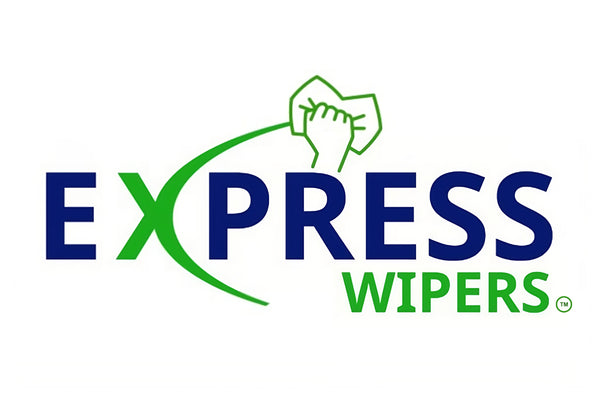In today's world, sustainability and eco-consciousness have become paramount. As industries strive to reduce their environmental footprint, even the smallest choices can make a significant impact. When it comes to industrial cleaning materials, the choice between recycled textile cleaning rags and non-woven or disposable paper wipers is one that shouldn't be taken lightly. In this post, we will explore why industrial cleaning rags made from recycled textiles are not only the environmentally responsible choice but also offer numerous practical advantages.
The Environmental Impact
Let's start by addressing the elephant in the room: the environmental impact of industrial cleaning materials. Traditional disposable paper wipers are a staple in many industries, but their production consumes vast amounts of trees and energy. Non-woven materials, while versatile, often rely on synthetic fibres and chemicals, making them non-biodegradable and contributing to landfill waste.
Recycled textile cleaning rags, on the other hand, repurpose existing materials, reducing the need for additional resource extraction and production. This practice significantly reduces carbon emissions and minimizes the strain on our ecosystems. By choosing recycled textile cleaning rags, companies can proudly claim to be part of the solution to our global environmental challenges.
Durability and Effectiveness
One of the key advantages of recycled textile cleaning rags is their durability. These rags are made from high-quality materials that have already proven their resilience. Unlike disposable paper wipers that tear easily and non-woven that may fray, recycled textile cleaning rags can withstand rigorous use. This longevity translates into cost savings for your business in the long run as they need to be replaced less frequently. For example, our 10kg bales of Lint-Free White Sheeting contains approximately 180-200 washable and reusable cleaning rags, manufactured from 100% white cotton hotel-grade sheets.
Recycled textile rags also offer superior absorbency and cleaning power. They efficiently soak up liquids, oils, and contaminants, leaving surfaces clean and dry. Their textured surfaces provide extra scrubbing power, making them versatile for a wide range of industrial cleaning tasks. Whether you're wiping down machinery or cleaning up spills, recycled textile cleaning rags get the job done effectively.
Cost-Effective Sustainability
While the initial cost of recycled textile cleaning rags may be slightly higher than disposable paper wipers, the long-term savings and benefits far outweigh this initial investment. Businesses can reduce their cleaning material expenses significantly by opting for reusable rags. Additionally, the positive environmental impact of choosing recycled textiles can be leveraged for marketing and branding purposes, attracting environmentally conscious customers and partners.
Promoting Circular Economy
Recycled textile cleaning rags are a prime example of a circular economy in action. By repurposing textiles that would otherwise end up in landfills, we extend the lifespan of these materials, reducing waste. This practice aligns perfectly with the principles of sustainability and responsible resource management.
Choosing the Right Supplier
To make the transition to recycled textile cleaning rags, it's crucial to partner with a reputable supplier who specializes in eco-friendly industrial cleaning materials. Our commitment to sustainability is evident through our range of recycled textile cleaning rags. Visit our website at www.expresswipers.co.uk to explore our environmentally responsible product offerings.
In conclusion, when it comes to industrial cleaning, the choice between recycled textile cleaning rags and disposable alternatives is clear. Recycled textile rags not only offer superior durability and effectiveness but also contribute significantly to reducing your company's environmental footprint. By making the switch to recycled textile cleaning rags, you're not just making a wise business decision; you're also taking a significant step towards a greener, more sustainable future.

